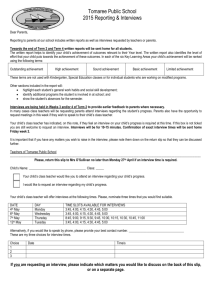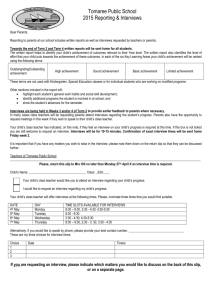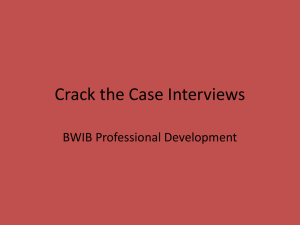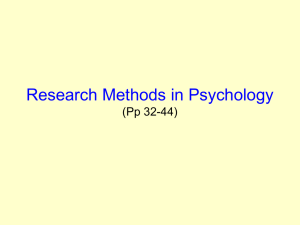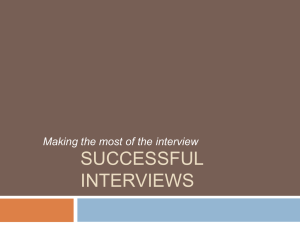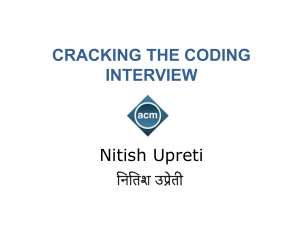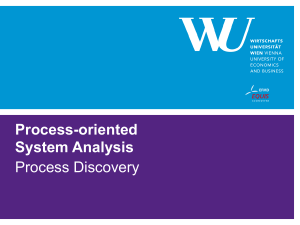Job Interview skills Learning Outcomes
advertisement
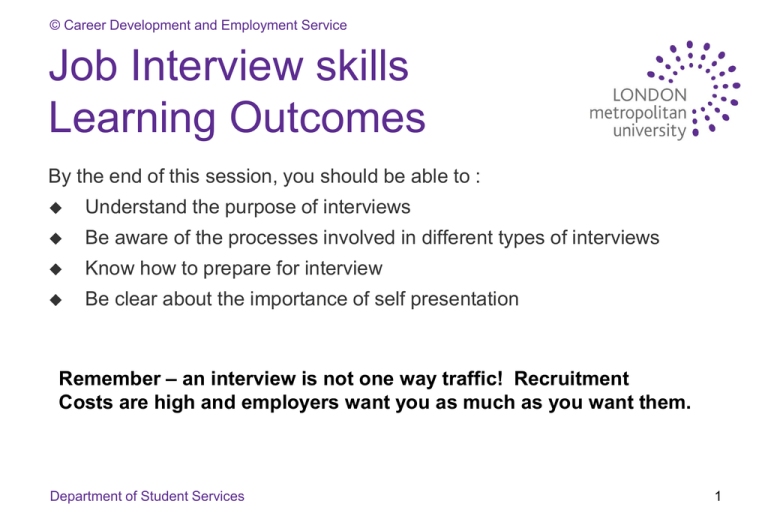
© Career Development and Employment Service Job Interview skills Learning Outcomes By the end of this session, you should be able to : Understand the purpose of interviews Be aware of the processes involved in different types of interviews Know how to prepare for interview Be clear about the importance of self presentation Remember – an interview is not one way traffic! Recruitment Costs are high and employers want you as much as you want them. Department of Student Services 1 © Career Development and Employment Service An interview will enable an employer: Ensure that you understand what the job involves, and that you have the necessary skills Check your knowledge of/and commitment to the company It is a two way process and you should use the opportunity to: Make sure you do want to work for the company Check that the philosophy/values of the company match your personal requirements Find out more about the job, training, career structure etc. Department of Student Services 2 © Career Development and Employment Service Types of interview Individual interviews – one to one. Panel interviews – usually three people on the panel, but there could be more! Telephone interviews – usually part of the initial selection process Video interviews – uncommon at graduate level entry, but not unheard of Department of Student Services 3 © Career Development and Employment Service Individual interviews For a large organisation this may be a ‘sifting’ exercise to see if you will go forward to the next stage For a smaller employer, this may be your main meeting The focus here is usually building on information from your CV or application form, but you should be prepared for anything Department of Student Services 4 © Career Development and Employment Service Panel interviews Very common for graduate entry level jobs Usually 3 people on the panel ( could be more, could be less ) All will ask questions Likely that they will have different areas of interest Department of Student Services 5 © Career Development and Employment Service Telephone interviews Usually used as a screening interview to gain further information before inviting you for interview Length of time may vary – could range from 10 minutes to 1 hour Treat the experience with caution – just because you can’t be seen doesn’t mean you are not creating an impression! Department of Student Services 6 © Career Development and Employment Service Video interviews Check all technical equipment to make sure everything is working Talk to the camera - this way you appear to be looking straight at the interviewers Department of Student Services 7 © Career Development and Employment Service The key to any successful interview is preparation Research the company – make sure you have read all the literature they have sent you and that you know about their main products and services Use the internet to find out any additional information and read the financial/business press to find out about any current developments e.g. new contracts or takeover bids Find out about the main competitors in order to demonstrate knowledge of the wider context Network with people who know about the company and don’t be afraid to use any contacts you may have to get ‘inside information’ Have a list of questions ready to ask Department of Student Services 8 © Career Development and Employment Service In addition… Plan your route and give yourself plenty of time in case of traffic disruption Plan your outfit, and remember – first impressions count!! Anticipate questions and practise answers Run through your presentation, paying strict attention to timing Bring copies of CV/Application form Department of Student Services 9 © Career Development and Employment Service Interview nerves You will be nervous but you can help yourself by Getting a good night’s sleep Allowing plenty of time for the journey Arriving early so you know exactly where to go – but not too early! Avoiding stimulants like coffee and cigarettes Checking your appearance to make sure everything is as it should be Department of Student Services 10 © Career Development and Employment Service Remember that practice pays Get a friend to ask you questions and give feedback Use a tape or video recorder to check for any mannerisms or verbal tics Ask at the Career Development and Employment Service about having a mock interview Department of Student Services 11 © Career Development and Employment Service Watch your language Avoid speaking too quickly Take a few seconds before you answer to give yourself time to collect your thoughts If you are not clear about the question then ask for clarification If you lose your thread ask for a moment to clarify your thoughts Ask if the interviewer needs additional information Department of Student Services 12 © Career Development and Employment Service Watch your body language! Give a firm, dry handshake Make eye contact with all members of the panel Smile to show your interest and enthusiasm Avoid extravagant hand gestures Sit slightly forward to indicate involvement Department of Student Services 13 © Career Development and Employment Service Remember: Do not alienate the interviewer by making them work too hard – it should be a conversation rather than a question and answer session Avoid giving ‘yes’ and ‘no’ as answers - it is much more effective if you go on to give examples to demonstrate what you mean Don’t just give an answer you think they want to hear - be honest in what you say and be prepared to back up your ideas and views Department of Student Services 14 © Career Development and Employment Service What sort of questions can you prepare for Why are you applying for this job? Give an example of where you have worked in a team What has been your biggest achievement to date? Why are you interested in this company? What are your main strengths? What are your main weaknesses? Where do you see yourself in 5 years time? How would your friends describe you in 3 words? Department of Student Services 15 © Career Development and Employment Service Put your answer in a context for scenario based questions Context – brief description of the situation Action – what steps did you take? Result – what was the outcome? Department of Student Services 16 © Career Development and Employment Service Do you have any questions? What would my career prospects be like? What training/support could I expect? What would the key objectives be in the first 6 months of the job? How will my performance be measured? Department of Student Services 17 © Career Development and Employment Service However…. Do not ask questions just for the sake of it Do not ask questions if you should already know the answer e.g.if it is in the company literature Do not ask about fringe benefits – that conversation can take place when you have been offered the job And remember….it may be that all your questions have been answered over the course of the interview Department of Student Services 18



